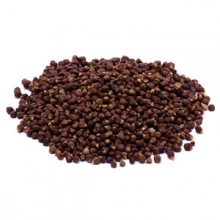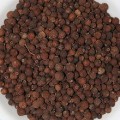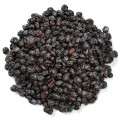 Loading... Please wait...
Loading... Please wait...- Home
- About Us
- Shipping, Returns & FAQ's
- Contact Us
-
For Your Information
- Canadian Customers Have a Choice if Shipping Via UPS
- Aura Cacia Homemade Aromatherapy Recipes
- Bella Nella Altered Art & Paper Crafts Blog
- Forms of Herbal Preparations
- Laundry Tips To Conserve Energy Blog from The Laundress
- The Story of Frontier Natural Products Co-Op
- Sovereign Silver Hydrosol and Aloe Protocol Stops Downward Spiral of Gut Dysbiosis
- Disclaimers
- Recommended Links
- RSS/Recent News
- The Story of Typhoon Housewares
- Reviews/Testimonials
- Raw Ingredients for Mfg
Grains of Paradise (Aframomum Melegueta) Bulk
Product Description
Botanical Name: Aframomum melegueta (Roscoe) K. Schumann
Origin: Africa/West Africa/Ivory Coast
Kosher: KSA Certified
Common Names: Melegueta pepper, alligator pepper, Guinea grains, and Guinea pepper
Plant Part: Seed
Melegueta is commonly employed in the cuisines of West and North Africa, where it has been traditionally imported via caravan routes through the Sahara desert, and whence they were distributed to Sicily and Italy. Mentioned by Pliny as "African pepper" but subsequently forgotten in Europe, they were renamed "grains of paradise" and became a popular substitute for black pepper in Europe in the 14th- and 15th-centuries[3][4][5]. The Ménagier de Paris recommends it for improving wine that "smells stale". Through the Middle Ages and into the Early Modern period, the theory of the Four Humours governed theorizing about nourishment on the part of doctors, herbalists and druggists: in this context, John Russell characterized Grains of Paradise, in The Boke of Nurture as hot and moist.[6]
In 1469, King Afonso V of Portugal granted the monopoly of trade in the Gulf of Guinea to Lisbon merchant Fernão Gomes,[7] including the exclusive trade of Aframomum melegueta, then called "malagueta" pepper - which was granted by 100 000 real-annually in exchange for exploring 100 miles of the coast of Africa a year for five years.[8] After Christopher Columbus reached the New World in 1492 and brought the first samples of Capsicum frutescens, the name malagueta was then taken to the new chilli "pepper".[4]
The importance of the spice is shown by the designation of the area from the St Johns River (present day Buchanan) to Harper in Liberia as the "Grain Coast" in honor of the availability of grains of paradise.[9] Later, the craze for the spice waned, and its uses were reduced to a flavoring for sausages and beer. In the eighteenth century, its importation to Great Britain collapsed after a Parliamentary act of George III forbade its use in malt liquor, aqua vita and cordials.[10] In 1855, England imported about 15,000 to 19,000 lbs per year legally(duty paid).[9] By 1880, the Encyclopaedia Britannica (9th edition) was reporting, "Grains of paradise are to some extent used in veterinary practice but for the most part illegally to give a fictitious strength to malt liquors, gin and cordials".[11]
Today, it is largely unknown outside of West and North Africa, except for its use as a flavoring in some beers (including Samuel Adams Summer Ale), gins, and Norwegian akvavit.[citation needed] In America, grains of paradise are starting to enjoy a slight resurgence in popularity due to their use by some well-known chefs. Alton Brown is a fan of its use, and he uses it in his apple pie recipe on an episode[12] of the TV cooking show Good Eats. They are also used by people on certain diets, such as a raw food diet, because they are less irritating to digestion than black pepper.
Alton Brown seems to favor these for Okra, as seen on his recent show "Okraphobia", where he makes okra and tomatoes with grains of paradise. Great mixed with Tellicherry black pepper, put in a pepper grinder and then used to encrust steaks as slight variation on steak au poivre. Grind over any dish where you would normally just grind straight black pepper to add a wonderful shake-up-your-table-condiments twist!
A New York Times article written by Amanda Hesser has popularized grains of paradise. She wrote, "I put a few between my teeth and crunched. They cracked like coriander releasing a billowing aroma, and then a slowly intensifying heat, like pepper at the back of my mouth. The taste changes in a second. The heat lingered. But the spice flavor was pleasantly tempered, ripe with flavors reminiscent of jasmine, hazelnut, butter and citrus, and with the kind of oiliness you get from nuts. They were entirely different from black peppercorns and in my mind, incomparably better."
Reference
wikipedia.org
Specifications may change without notice.
*FDA Disclaimer
You Recently Viewed...
Currency Converter
Choose a currency below to display product prices in the selected currency.



























